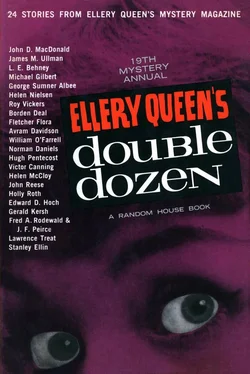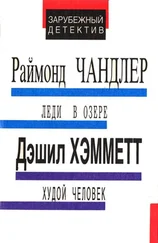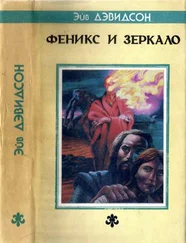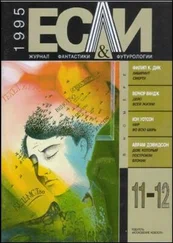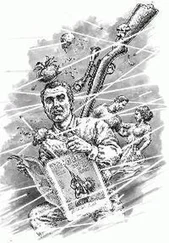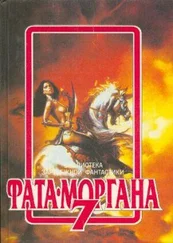His voice choked. Very gently Marie said, “Eat your supper.” And he knew he had won.
It was after he finished the iced tea that he reflected, aloud, that he still didn’t know, after all, if the man was Ben Lomax. Call the police, Marie said. And so he did.
“Headquarters, Sergeant Callan speaking.”
“Say... This fellow you picked up on Hargraves Street a little after five — is he Ben Lomax, or isn’t he?”
There was a pause. Then Sergeant Callan said, “Who is this? Who are — who wants to know, huh?”
Confused, annoyed, and with the average man’s almost instinctive reluctance to give his name to the police, Charley asked, “What difference does it make, who? All I want—”
The voice of Sergeant Callan, which had kept caution for its main note, now became openly hostile, “Yeah? Well, don’t worry about it!” the Sergeant snapped, and hung up.
“They must of thought I was one of his gangster pals,” he told Marie. Later it occurred to him that perhaps the man had turned out not to be Lomax after all, and that the police were too embarrassed to discuss it. He was wrong, of course, on both counts.
As he found out the next afternoon.
Lew Livingston, face inflamed with sun and rage, came over to him, half on the run, waving a newspaper, shouting as he came.
“You see this? Charley! You see the paper? Those dirty, rotten—” His voice went on and on.
Charley took the local paper, tried to concentrate. There it was. The same picture of Lomax, neat and slick, that the papers and television and reward posters had featured; next to it the picture of the man as he had been when Charley saw him — dirty, stubble-faced.
And the headline read: CITY POLICE TAKE BANK ROBBER.
Ben (“Benny the Barber”) Lomax, whose successful $50,000 holdup of the Second National Bank last month resulted in the death of bank guard Frank Foster, was captured here yesterday. Arrest was made by Patrolmen Thomas V. Colcott and Edgar Trapp. The keen-eyed police officers...
After that everything moved so fast that Charley, afterward, was not so clear about the details. Lew was loud and outraged, Max White the foreman came out to protest. It was still hot, the plant was steamy. Charley went to get a drink of water, but even the water was almost hot, it seemed. A picture came to him of Benny the Barber being led to execution, the grease from the motor of his car still there on his forehead where Charley had seen him wipe it.
He tried to obliterate the picture with another — of Frank Foster, the bank guard, struggling to rise from the pool of his own blood. Foster had been shot in the stomach, and Charley remembered that long ago he’d heard that this was the most painful kind of gunshot wound. In the Army they’d said that a man with a gunshot wound there should never be given anything to drink — no, no matter how much he begged for it, screamed for it...
He was still thirsty. The water had a coppery taste to it. He took his lips away from the tiny bubble of water... There was a reporter. Max had called him. Charley told him the story, then Lew — calmer now, though not by much — told him his.
“You two better go with him,” Max said. “What do you mean, your deliveries?” he said fretfully to Charley’s low-keyed protests. “Those few bundles? The route man will take care of them, and take care of Lew’s too. Go on.”
First they went to the editor of the paper. He called the Commissioner, the Commissioner called the Chief of Police. Then they were all in the Commissioner’s office — Charley, Lew, the reporter, the Commissioner, the Chief, and the two cops, Colcott and Trapp.
Trapp brazened it out all the way, but Colcott got confused. It didn’t take long before the Chief got him to admit he’d been lying. What was the idea? the Chief demanded. How come they tried to file a false report?
Sweating copiously, standing on one foot, then the other, Colcott said, “Yeah, but Chief, all right, I agree—”
“ You agree! Thanks a lot!”
“Yeah, but Chief, me and Syd, Patrolman Trapp, I mean, uh, we took the risks. Right? You know, a guy like that, a hood like The Barber, it was just luck he wasn’t armed, but we didn’t know that, we took the risk he could of shot us both, maybe, like Foster—”
“Will you for crysake get to the point?”
Trapp, blank-faced, but with a note of something close to contempt in his voice, said, “The point is the reward, Chief.”
Then:
Lew: “There! You heard him! Did you hear—”
Reporter: “Now we’re getting some place!”
Chief: “What reward, you blockhead?”
And the Commissioner, lips compressed to a thin line, moist hands folded across his bulging, translucent shirt, nodded his head.
“Now listen,” said the Commissioner. “Everybody. Okay?” Everybody listened. “All right. Too hot to shout. Now. The policy of this department, like the policy of most other departments of public safety, is that police don’t collect rewards. Right, Chief?”
The Chief nodded. Once.
“The reason is,” the Commissioner went on patiently, “that they cannot take outside money when the City is paying them. See? You took a risk? Correct. That’s your job. If you hadn’t tried to make monkeys out of the Chief and me, maybe we would’ve seen to it you got a department medal.” Trapp’s mouth went ugly. “In fact, if I’m not mistaken, the courts have held that a peace officer isn’t entitled to a reward for an arrest made in his own jurisdiction. You go to the beach, you pick up somebody there and turn him in to the local authorities like any private citizen, you collect the reward. If there is one. But for any arrests you make here, or any information you give here, you don’t collect a reward.”
“Charley and me collect it,” Lew said.
The Commissioner’s face showed a degree of annoyance, very quickly concealed. Lew, after all, was a citizen, residing locally, and might possess a large family of actual or future voters.
“I trust you may, Mr. Livingston,” he said. “I sincerely hope that you and Mr. Rosco will collect the reward. I’m sure you deserve it. But let’s not be premature.” The smile left Lew’s face. “The reward money was put up, as you probably know,” the Commissioner continued, “partly by the bank, partly by the County Bankers’ Association, partly by the newspaper and the Chamber of Commerce, and the rest was contributed by private citizens. Now, ” he said briskly, as Lew began to become restless, “the reward was offered in the usual terms — ‘for information leading to the arrest and conviction of Ben Lomax, alias Benny the Barber,’ and so on. He’s been arrested. But he hasn’t even been indicted, let alone brought to trial and convicted.”
Lew gaped, showing the backs of his teeth. He seemed shocked. The Commissioner got up, shook hands with him and Charley and the reporter. “Public-spirited citizens are an example to everyone,” he said. Then he asked them to excuse him, as he and the Chief had some official business to conduct His eyes rested on the two policemen. Their eyes did not rest on him. Colcott looked at the floor; Trapp looked, first at Lew Livingston, then at Charley. Hot as the air in the office was, Charley felt the coldness of that look, and wondered at it, but not for long.
The reporter’s questions made him forget Patrolman Trapp.
“What are you planning to do with your shares of the reward,” the reporter asked.
“That’s my business,” said Lew, automatically truculent. He had sense enough to amend his words at once, “I mean, I dunno exactly what my plans are, as yet. Let’s not be premature,” he concluded, his words a forlorn echo of the Commissioner’s.
Читать дальше
